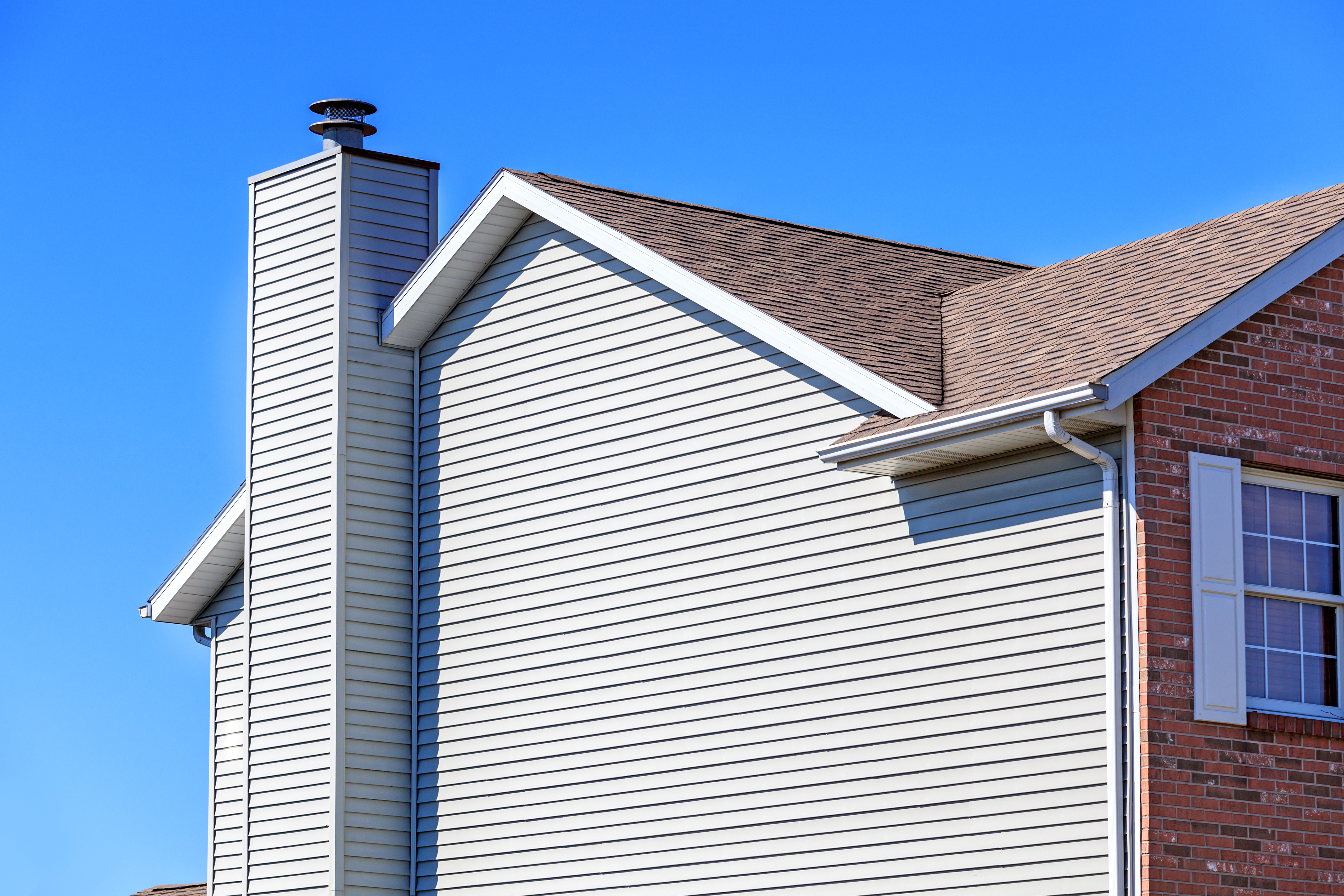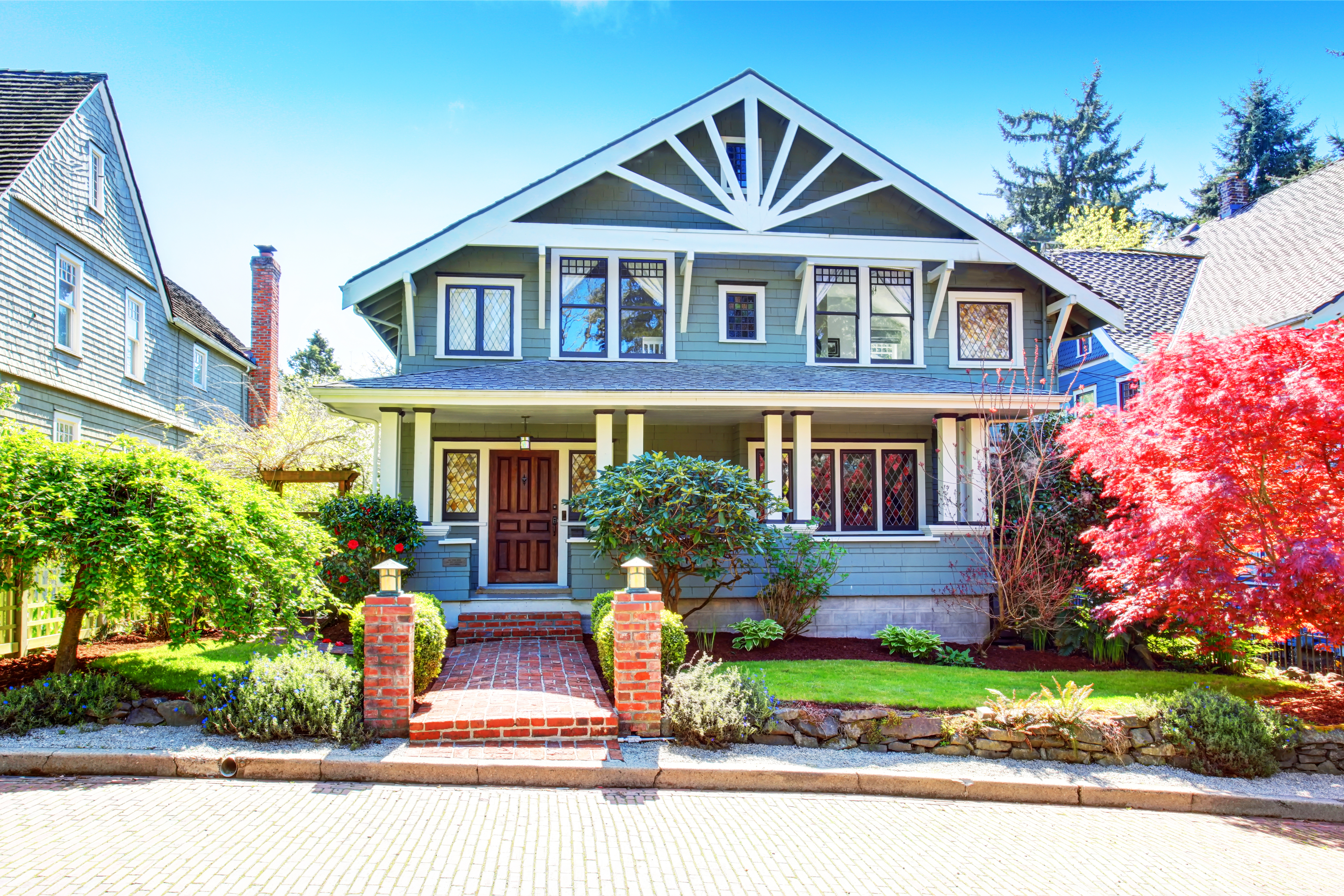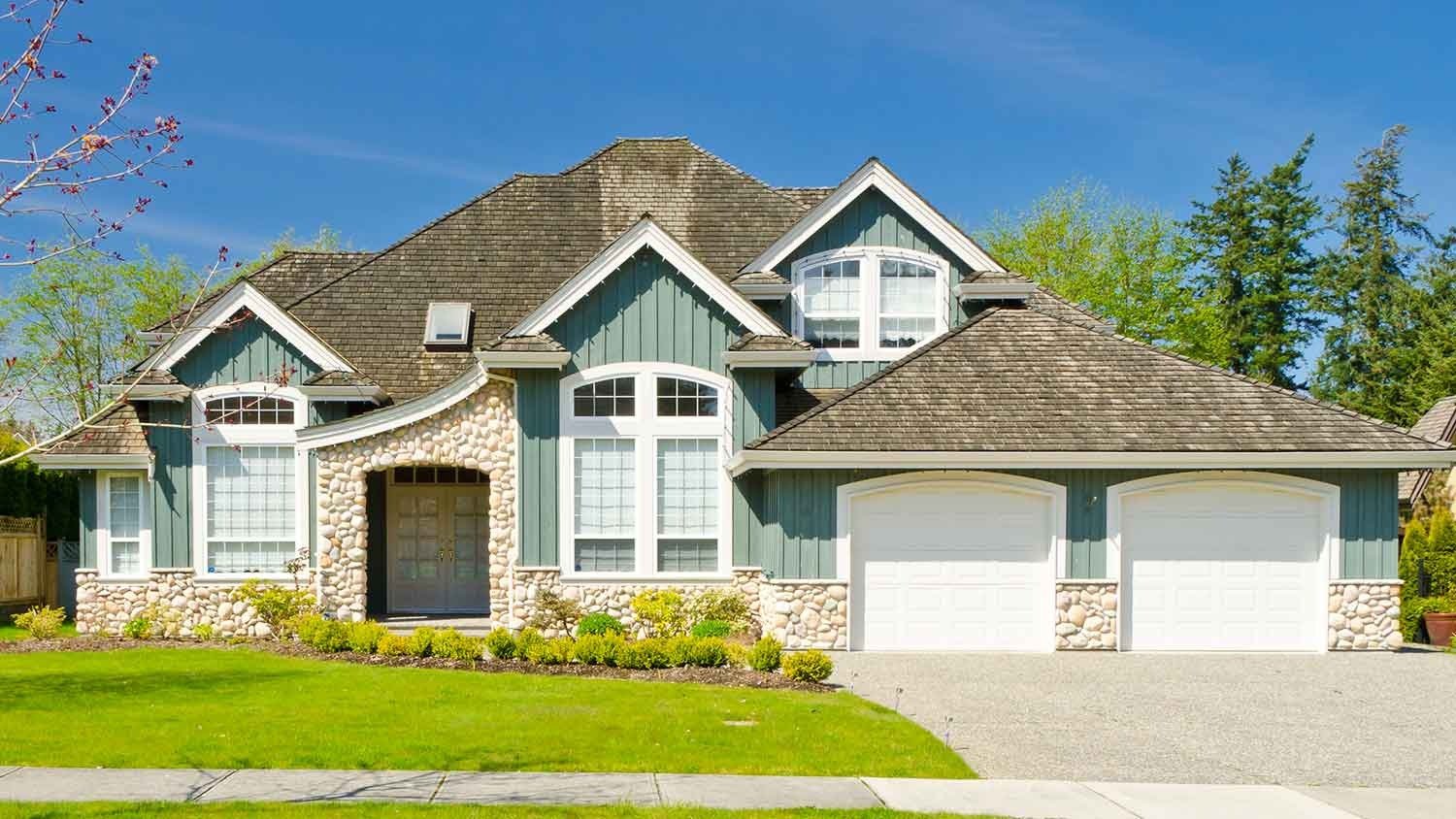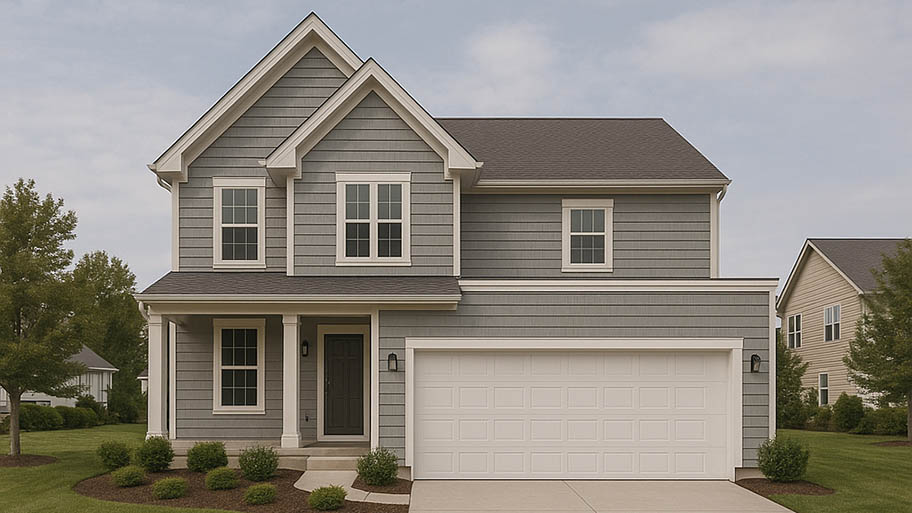
In addition to protecting against extreme Midwest temperatures, new siding in Columbus adds curb appeal. Learn about siding replacement cost in Columbus.
Vinyl siding installation in Denver costs $13,766 on average, with most homeowners spending between $8,199 and $19,762. A siding pro will assess the size of your home and chosen vinyl siding type to calculate the final cost.


The cost of your vinyl siding installation will depend on the size of your home, the specific vinyl type, and labor fees.
Labor costs $1 to $4 per square foot for siding installation in Denver.
Homeowners should opt for higher-quality vinyl, as it will protect their home against Denver’s extreme weather.
The city has very specific building permit fees, so be sure to factor these into your final project cost.
Vinyl siding installation in Denver costs about $13,766 on average, but it can range from $8,199 to $19,762. Given the extreme weather in Denver, homeowners should plan to install quality vinyl siding, which will fall on the upper end of the cost spectrum for this project. The largest factors affecting vinyl siding installation are the material and size of your home. However, labor costs and permits will play a big role as well. Learn the various factors at play and what you can expect to pay for this project.
As with many home projects, several factors affect the final cost of vinyl siding installation. The size of your home, the type of vinyl siding, quality, labor costs, and more will influence the project's cost. Overall, vinyl is a more affordable siding option, which is why it remains one of the most popular options.
The size of your home will be the main factor that influences the cost of your vinyl siding installation. The more area the installer needs to cover, the more you will need to pay for materials and labor—larger homes will take longer to complete.
| House Size in Square Feet | Average Cost |
|---|---|
| 2,500 | $4,000–$20,000 |
| 5,000 | $10,000–$50,000 |
| 8,000 | $16,000–$80,000 |
There are many types of vinyl siding, and each has a different price point. Luckily, overall, vinyl siding is one of the more affordable siding options, and there is likely a style that works with both your budget and your home’s aesthetic.
Within each type of vinyl, there will be higher- and lower-quality options. Higher-quality siding is often thicker and more durable, with panels at least .040 inches thick. It might also include special engineering to withstand extreme weather conditions, such as high winds, heavy rain, and major temperature shifts. Of course, higher-quality siding will cost more.
Given Denver's cold winters, you’ll likely want to opt for vinyl siding that is of higher quality and, ideally, insulated. Insulated vinyl siding will keep the heat inside your home even when it is blustery outside, helping to lower your energy bills.
| Vinyl Siding Type | Average per square foot | Pros | Cons |
|---|---|---|---|
| Shake | $3–$9 | Durable, looks like real wood | Higher cost, difficult to clean |
| Traditional Lap | $2–$7 | Water-repellant, affordable | Plain design; prone to accumulating moisture and dirt |
| Dutch Lap | $2–$7 | Durable, weather-resistant, mimics handcrafted woodwork | Can cost more than traditional lap, may not work with minimalist designs |
| Clapboard | $3–$6 | Classic design, easy to install | Often more expensive than traditional lap, basic design |
| Beaded Seam | $3–$7 | Elegant look, mimics handcrafted woodwork | May require extra maintenance |
| Board and Batten | $4–$8 | Excellent choice for vertical installations, weather-resistant | Higher cost, challenging to install, limited design options |
| Scalloped | $5–$9 | Unique appearance, complements historic homes | Higher cost, doesn’t work well with modern designs |
| Insulated | $4–$12 | Improves energy efficiency, reduces noise pollution | Higher upfront cost, harder to install |
When calculating the cost of your materials, you should also factor in tax. In Denver, the combined state sales tax is 8.81%. A local siding pro should be able to walk you through the taxes you will incur when drawing up an estimate for the work.
Expect that up to 50% of your total project cost will go to labor, and the price of the labor will depend on the complexity of your project, the size of your home, accessibility, and more. Most contractors include labor costs in their estimates, but be sure to clarify the project cost breakdown when you hire a siding contractor.
Before you can install vinyl siding, you’ll need to obtain several building permits and schedule inspections. Permits will range in cost and will depend on the extent of the project as well as your specific location. A local vinyl siding pro will be able to help secure the proper permits needed to complete your project.
Denver calculates permit fees based on the valuation of the work being performed. Work valued under $25,000 requires a permit fee of $35 for the first $2,000, plus $8 for each additional $1,000 or fraction thereof, up to $25,000.
You might also need to get HOA approval before changing the exterior of your home—this shouldn’t have an immediate cost, but the approval process could extend the time the project takes to complete and increase overall spending.
There will be added costs if you need your existing siding removed. The cost will vary depending on accessibility, the size of your home, and the condition of the siding.
Because Denver experiences big seasonal shifts, prices for labor and materials may fluctuate depending on when you plan to install your vinyl siding. In winter, for instance, the prices may be lower, as there is less of a demand for home projects—contractors may have less work as well, and may be willing to negotiate toward a lower fee. Installing siding in winter does pose a particular set of challenges, however, and you should hire a local siding contractor who understands them and knows how to navigate them.
You should expect to spend $1 to $4 per square foot on labor when you hire a Denver siding pro, depending on the difficulty of your project. While most states in the U.S. require contractors to be licensed, Colorado does not. That said, Denver has its own specific rules in place, and requires that contractors pass an International Code Council (ICC) exam to qualify for a license, and must be licensed before they perform any work.
It may cost less to find a contractor who skirts the law and is uninsured, but this can lead to big problems down the line. If any damage is done during the project or someone gets injured on your property, you will be on the hook for the bill (in addition to all the stress). Inquiring about licensing and insurance should be one of many questions to ask a potential siding professional.
New vinyl siding is estimated to have an 80% ROI, given its low price point, durability, and long lifespan. It is also naturally insulating, which can be helpful in Denver’s cold winters—the siding will help your home keep warm and comfortable and ultimately lower your energy bills. Some realtors suggest that homes under $350,000 will reap the best ROI from vinyl siding. Fiber cement siding is another popular choice with excellent returns, given its ability to withstand intense UV rays and snowstorms without warping or cracking.
Home is the most important place on earth, which is why Angi has helped more than 150 million homeowners transform their houses into homes they adore. To help homeowners with their next project, Angi provides readers with the most accurate cost data and upholds strict editorial standards. We survey real Angi customers about their project costs to develop the pricing data you see, so you can make the best decisions for you and your home. We pair this data with research from reputable sources, including the U.S. Bureau of Labor Statistics, academic journals, market studies, and interviews with industry experts—all to ensure our prices reflect real-world projects.
Want to help us improve our cost data? Send us a recent project quote to [email protected]. Quotes and personal information will not be shared publicly.
From average costs to expert advice, get all the answers you need to get your job done.

In addition to protecting against extreme Midwest temperatures, new siding in Columbus adds curb appeal. Learn about siding replacement cost in Columbus.

Fiber cement siding is durable, fire-resistant, and affordable. Learn more about fiber cement installation costs in Columbus, OH.

The cost of siding repair varies depending on material, design, and damage. This helpful guide covers the siding repair costs to expect in Columbus, Ohio.

New siding is a great way to improve your curb appeal and boost your home value. Learn about vinyl siding alternatives that can offer more value for the money.

From clapboard to shiplap, there are tons of wood siding types for you to choose from. Here’s a run-down of the ten most popular types of wood siding.
.jpg?impolicy=leadImage)
Stucco that isn’t waterproofed leaves your home vulnerable to moisture damage. Learn four ways to waterproof stucco for the most protection.